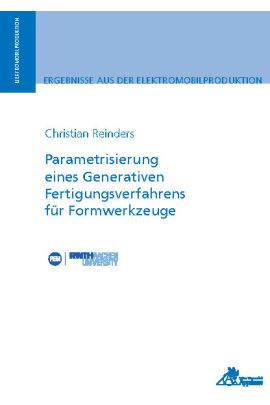Shorter product life cycles present new challenges in the area of toolmaking and especially tool development. The current development of shaping tools is expensive and time-consuming. Compared to established manufacturing processes in the tool industry, additive manufacturing processes are a young technology, whose fields of application are constantly being expanded. Currently, there is a variety of different additive technologies available for the tool industry, so that up to now no technology has been able to establish itself in the shaping tool development sector. The main reason for this is the lack of knowledge about the interactions of additive manufacturing processes. In order for additive manufacturing technologies to establish themselves in shaping toolmaking, the requirements from shaping toolmaking must be known and the printer parameterisation must be understood with its effects on the manufactured product.
In this dissertation, the field of additive manufacturing technologies is observed and a suitable process for the manufacture of shaping tools is identified. In a further analysis, the common requirements of these methods and their tools are considered in order to adress the widest possible field of application. A suitable method is the design of experiments, which helps to analyse the additive manufacturing process with regard to the requirements from the shaping tool construction.
More than 3,000 measurements have been made to evaluate the interdependencies between printer parameterization and toolmaking requirements. With the help of statistical software for evaluation, the prevailing interactions could be analysed from this data set. In addition, the results makes it possible to forecast specific applications from the tool industry with corresponding forecasts. This means that a specific case with specific targets can be predicted based on the database. The forecast displays the possible values to achieve based on the defined targets with a corresponding probability and exact values. Due to the high traceability of this work, it is possible to investigate new materials or processes using the same method and to determine interactions of effects.
| Autor | Reinders, Christian |
|---|---|
| Lieferzeit | 3-4 Tage |
| Gewicht | 0.364 kg |
| Erscheinungsdatum | 30.09.2020 |

